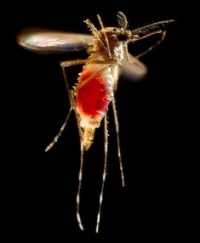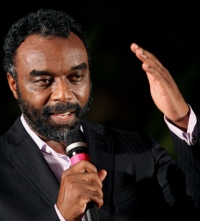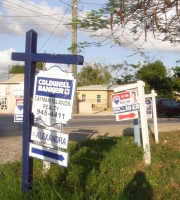Archive for January 26th, 2011

Real Estate in Cayman
The problem with Cayman real estate is that it was driven by a tax-free wealth preservation and speculative marketing structure. Most non-resident buyers purchased property with the expectation that it would either increase in value or be paid for by rental returns. Since their investment was offshore, any equity growth or value appreciation would remain tax-free until it was repatriated.
Since no one likes to pay taxes the wealth captured here was seldom repatriated; it was either land-banked (sic) or rolled over into more expensive properties.
The strength of this recession changed attitudes a lot. Foreign private owners are not only cashing out because they need the money but also because of tax treaties and new opportunities — the world is saturated with great deals and great places to live. Even our Caribbean neighbors are getting their act together; just look at the homes in Caribbean lifestyle magazines or at St Kitts and Nevis, where they throw in a new passport for a purchase over $350K.
Our once powerful and unique sales pitch resulted in the continuous expansion of property investment, development and price increases, a self-fulfilling prophecy that encouraged more foreign buyers. The residential population and expatriate worker also dove into real estate investment with a passion. Most local wealth in Cayman is now buried in real estate.
This once powerful investment message is worn out, the bubble has burst and we don’t have a sales pitch to fit the newreality. If you remove speculation from the equation, the only justification for purchasing real estate is income producing, lifestyle improvement and basic housing needs. Hence the hope expressed above that the new economic development projects will soak up the inventory currently on the market. Besides residential real estate, what are we going to do with the huge glut of empty commercial property in Cayman? When government moves into its new building we will have nearly half a million square feet of vacant office space in Cayman. Think about that for a moment.
Unfortunately inventory and market activity are interlinked: if the market expands our inventory will also expand, especially in Cayman where we have so many big investors, experienced developers and freelance contractors sitting on all those land banks, investment funds and planned projects.
As more land banks are liquidated at distressed prices the cost of new development is reduced, which makes it more competitive to develop. This just-in-time, price sensitive, manufacturing capacity will anticipate any market growth and our inventory will expand before demand does. When you consider that there is also an overhang of property waiting for the market to improve, it is unlikely that we will return to the exciting appreciation led market growth of the past.
Our only solution is real economic diversity and expansion. Cayman is no longer unique in this new global marketplace. If we want to move forward we need new industries, new active business investors and more people living and working here. While we attempt to work those socially sensitive issues out, our competitors are aggressively inventing new opportunities.
The best bet for our real estate industry is to switch from selling market appreciation and focus on selling value within the current marketplace. The sooner that happens the quicker the industry can reboot.

Malaysia releases lab mosquitoes to fight dengue
 (Yahoo! News): Malaysia released about 6,000 genetically modified mosquitoes into a forest in the first experiment of its kind in Asia aimed at curbing dengue fever, officials said Wednesday. The field test is meant to pave the way for the use of genetically engineered Aedes aegypti male mosquitoes to mate with females and produce no offspring or ones with shorter lives, thus curtailing the mosquito population. A similar trial in the Cayman Islands last year — the first time genetically modified mosquitoes have been set loose in the wild after years of laboratory experiments and hypothetical calculations — resulted in a dramatic drop in the mosquito population in a small area studied by researchers.
(Yahoo! News): Malaysia released about 6,000 genetically modified mosquitoes into a forest in the first experiment of its kind in Asia aimed at curbing dengue fever, officials said Wednesday. The field test is meant to pave the way for the use of genetically engineered Aedes aegypti male mosquitoes to mate with females and produce no offspring or ones with shorter lives, thus curtailing the mosquito population. A similar trial in the Cayman Islands last year — the first time genetically modified mosquitoes have been set loose in the wild after years of laboratory experiments and hypothetical calculations — resulted in a dramatic drop in the mosquito population in a small area studied by researchers.

AP programme can take Cayman kids to Harvard
 (CNS): The Cayman Islands Further Education Centre that has been created to accommodate students in the first mandatory Year 12 is not only providing vocational opportunities but academic ones as well for the highest achieving teens from Year 11. The Advanced Placement programme allows students to take exams that will facilitate their entry into American, British, European and Caribbean universities and colleges. Speaking in the Legislative Assembly earlier this month the education minister said that the AP qualifications are administered by the college board which offers SATs in the US and are recognized by institutions such as Harvard in the US and Oxford in the UK.
(CNS): The Cayman Islands Further Education Centre that has been created to accommodate students in the first mandatory Year 12 is not only providing vocational opportunities but academic ones as well for the highest achieving teens from Year 11. The Advanced Placement programme allows students to take exams that will facilitate their entry into American, British, European and Caribbean universities and colleges. Speaking in the Legislative Assembly earlier this month the education minister said that the AP qualifications are administered by the college board which offers SATs in the US and are recognized by institutions such as Harvard in the US and Oxford in the UK.
Students are required to take maths and English and can pick two other subjects from the arts, sciences and languages, and as the Advanced Placement is a two year programme students will be able to take different subjects in the second year. The AP programme is scheduled to be introduced to the Brac high school in September 2013.
The students taking the AP programme are also part of an Education Department pilot project, testing the feasibility of one-to-one computing in the education system. According to education officials, Cayman students already have a favourable student-to-PC ratio when compared to other jurisdictions, but the goal is to give older students more time with the technology.
In much the same way as text books are loaned to students during the course of a year, each of the AP students will be assigned a netbook, which they can take home throughout their twelfth year. The PCs must, however, be returned at the end of their studies.
Chief Education Officer Shirley Wahler said it would close the digital divide between students who have PCs at home and those who don’t, giving them all equal access to the digital world and its resources.
“We want our students to become independent learners, thinkers and researchers, as these skills prepare them for success beyond the secondary level,” she said. “Advanced Placement students are expected to take on a great deal of independent study and research, and netbooks are a cost-effective tool to achieve this.”
If successful, the pilot laptop project could reduce costs associated with sourcing, purchasing, shipping and storing expensive text books. Instead, AP students will be able to find and read books and other study materials online at no cost through sources such as the Project Gutenberg digital library. Precautions have, however, been taken to ensure that students use the technology appropriately.
Wahler said the school networks are equipped with relevant safety features to prevent access to improper websites. Participating students have also signed agreements which set out standards and expectations for computer use. Additionally, the new machines will be periodically checked and students who’ve misused their PCs off campus will immediately lose the privilege.
In total, the 20 machines – secured at a reduced cost with the help of Priced Right Managing Director Woody Foster – cost the Education Department just under $8,000.
A free on-campus hotspot, donated by LIME, also gives students web access between classes and outside of school hours.

Lower airfare to attract visitors, says CBO speaker
 (CNS): One way to encourage visitors to get to a destination is to lower airfare, according to the Bahamas Minister for Tourism and Aviation, Vincent Vanderpool-Wallace, who spoke at last week’s Cayman Business Outlook conference, held at The Ritz-Carlton. This was critical, he said, because once visitors had received a good deal in their airfare they would be inclined to spend more in the destination itself. Embracing the digital age was another important move. “I am a great believer in the thought that God created man to create the Internet to help the tourism sector,” he said. “It’s the most efficient system ever created and yet large sectors of people are still not using it … The customer is now the reservation agent.”
(CNS): One way to encourage visitors to get to a destination is to lower airfare, according to the Bahamas Minister for Tourism and Aviation, Vincent Vanderpool-Wallace, who spoke at last week’s Cayman Business Outlook conference, held at The Ritz-Carlton. This was critical, he said, because once visitors had received a good deal in their airfare they would be inclined to spend more in the destination itself. Embracing the digital age was another important move. “I am a great believer in the thought that God created man to create the Internet to help the tourism sector,” he said. “It’s the most efficient system ever created and yet large sectors of people are still not using it … The customer is now the reservation agent.”
Short stay visitors ought to be encouraged because they tend to spend more than those who have longer stays and people from nearby in the States ought to be specifically encouraged to visit places like Cayman because of their proximity and thus ease of travel to the jurisdiction.
There is no place for “ego” tourism in this current financial climate and destinations need to think about the bottom line when it comes to tourism, Vanderpool-Wallace said. He explained the value of tourists to an economy, saying that they spent more than locals but didn’t put a drain on schools or hospitals and they didn’t deplete natural resources.
“It’s a clean business and they contribute enormously to the economy,” he said. The problem was, he added, that each destination only had one shot at getting these important consumers to spend their money, so countries had to really work hard to get the most spend from visitors to their destination.
Focusing on core competencies was vital and diversification was not necessarily a panacea, he confirmed, stating that companies such as LVMH did so well because they concentrated on what they did best.
Destinations needed to work much harder at attracting visitors. “Tourism these days has little to do with flying and fopping,” he confirmed. “You need to create reasons to come to your destination.” He believed that sports and medical tourism initiatives were good ways to encourage more visitors.
The Caribbean was, Vanderpool-Wallace stated, the most tourism dependent region in the world. The region needed to make it a place where tourism talent gathered and was marketed all around the world, much like how Silicon Valley in California had become the IT hub of the world.
“Why aren’t we the HQ for tourism?” he asked. “We’ve got to stop relying only on other people who come to our shores. Tourism is a national business.”

Lord Taylor guilty of making false expenses claims
 (BBC): Ex-Tory peer Lord Taylor of Warwick has been found guilty of making £11,277 in false parliamentary expenses claims. The 58-year-old peer claimed travel costs between his Oxford home and Westminster, as well as subsistence for staying in London. He claimed he had made the false claims "in lieu of a salary", and had been acting on the advice of colleagues. But a jury at Southwark Crown Court found him guilty by an 11-1 majority verdict. He has been released on bail pending sentencing at a date to be confirmed. Taylor, who was Britain’s first blackpeer and a former barrister and radio and TV presenter, listed his main residence as a home in Oxford, which was owned by his nephew, while he actually lived in a flat in London. He is the third MP to appear in court over expenses.
(BBC): Ex-Tory peer Lord Taylor of Warwick has been found guilty of making £11,277 in false parliamentary expenses claims. The 58-year-old peer claimed travel costs between his Oxford home and Westminster, as well as subsistence for staying in London. He claimed he had made the false claims "in lieu of a salary", and had been acting on the advice of colleagues. But a jury at Southwark Crown Court found him guilty by an 11-1 majority verdict. He has been released on bail pending sentencing at a date to be confirmed. Taylor, who was Britain’s first blackpeer and a former barrister and radio and TV presenter, listed his main residence as a home in Oxford, which was owned by his nephew, while he actually lived in a flat in London. He is the third MP to appear in court over expenses.

Antibiotics linked to health risks in kids
 (CNS): Children who are prescribed antibiotics within the first six months of life are at a significantly increased risk of developing asthma and allergies by the time they reach six, according to new report. Researchers at the Yale School of Public Health in the United States followed 1,400 women, collecting data throughout their pregnancies and from their children until their sixth birthdays. They found that infants exposed to antibiotics during their first six months were up to 52 percent more likely to develop childhood asthma and allergies than those who did not receive antibiotics.
(CNS): Children who are prescribed antibiotics within the first six months of life are at a significantly increased risk of developing asthma and allergies by the time they reach six, according to new report. Researchers at the Yale School of Public Health in the United States followed 1,400 women, collecting data throughout their pregnancies and from their children until their sixth birthdays. They found that infants exposed to antibiotics during their first six months were up to 52 percent more likely to develop childhood asthma and allergies than those who did not receive antibiotics.
While previous studies have also found that antibiotic use may increase the risk of asthma in children, those studies may have been biased because antibiotics are used to treat respiratory tract infections that could themselves be early symptoms of asthma.
The Yale study sought to eliminate this bias and concluded that antibiotic use increased risk of childhood asthma even in children who have not experienced respiratory tract infections and in children whose asthma is first diagnosed after three years of age.
According to researchers, the use of broad-spectrum antibiotics and the fact that children in developed countries grow up in overly hygienic environments may suppress their developing immune system and produce a reduced anti-allergic response.
Researchers say that early microbial exposure, particularly in the intestinal tract, seems necessary for transition to a mature and balanced immune system in childhood. Antibiotic use, especially broad-spectrum antibiotics, may alter microbial flora in the gut, thereby causing imbalances in the immune system and a poor allergic response.
A third of infants in the US are exposed to antibiotics in the first six months of life, most commonly for respiratory tract infections, although the majority of these diseases are viral and do not respond to antibiotics. The use of broad-spectrum antibiotics continues to increase.
“The findings from our study should encourage physicians to avoid unnecessary antibiotic use, especially in low-risk children,” said Kari Risnes, a paediatrician from the Norwegian University of Science and Technology, visiting researcher at the Yale Center for Perinatal, Paediatric and Environmental Epidemiology and the study’s lead author.

Projects needed to lift market
 (CNS): With 2010 one of the worst in recent times in terms of real estate sales for the Cayman Islands, brokers across Grand Cayman are predicting a slight upswing this year, but warn that plans by government to lift the economy need to take effect to make it happen. Kim Lund, Owner/Broker with RE/MAX, said that 2011 will still be another slow and painful year for real estate sales, as the tepid US economic recovery starts to slowly have some impact in Cayman by mid 2011. “Sales should start picking up this year but it will only be the very best properties with the most beaten down prices that sell. There will be precious few properties that actually sell for market value in 2011,” he confirmed.
(CNS): With 2010 one of the worst in recent times in terms of real estate sales for the Cayman Islands, brokers across Grand Cayman are predicting a slight upswing this year, but warn that plans by government to lift the economy need to take effect to make it happen. Kim Lund, Owner/Broker with RE/MAX, said that 2011 will still be another slow and painful year for real estate sales, as the tepid US economic recovery starts to slowly have some impact in Cayman by mid 2011. “Sales should start picking up this year but it will only be the very best properties with the most beaten down prices that sell. There will be precious few properties that actually sell for market value in 2011,” he confirmed.
Lund said there are two viable possibilities for the big real estate story of 2011. “One is a mega resort for the hundreds of acres currently owned by Thomas Enterprises, north of the CI Yacht Club. New financing has recently been put in place on this property, indicating there may be some activity brewing. The other is a boom of resort development, just north of the public beach on West Bay Road, if government agrees to move West Bay Road back to the east, so that it runs behind the vacant Courtyard Marriott Hotel. This would vastly increase the amount of developable beachfront on Seven Mile Beach,” he stated.
Following announcements last week, Lund’s wishes may well come true as the premier told the CBO on Thursday that the road is very likely to be moved now that Dart have purchased both the land and the Courtyard Marriot. However, the Camana Bay developer has not offered a timeline for developing the area and has described it as a future opportunity.
Regardless of the situation concerning the Courtyard Marriot, RE/MAX broker Kass Coleman says that everyone from their RE/MAX office feels that 2011 will be a minimum of 10 to 40 per cent better than last year and the year before. “Buyers feel the fog has cleared and they are making decisions and getting on with their real estate planning and purchasing,” she said.
Although optimistic in the long term, Mike Joseph, also a broker with RE/MAX, feared the downturn in the industry had not yet passed Cayman by.
“The instability and uncertainty in many respects, locally and internationally, have been very influential despite the opportunities created in a recessionary market. Simultaneously the market believes that prices will drop further and are waiting for new opportunities this year. 2009 and 2010 saw reductions in pricing in many of the sectors of the local property market yet the number of transactions were still suppressed,” he confirmed.
Not only have North American investors (traditionally Cayman’s biggest market driver for real estate) been nervous about spending during a recession, but the contraction in Cayman’s population has also hit the real estate industry hard.
Joseph explained, “The contraction in population has negatively affected the rental market for landlords/property investors and in turn developers who have been left with completed but unoccupied units. Sales prices therefore have been reduced in order to generate sales and the local residents are seeing these opportunities but with a continued lack of confidence, they have still remained apprehensive to purchase.”
Joseph believed that the slew of projects waiting in the wings will kick start investment in real estate.
“We need to see certain developments and projects, ideas and concepts break ground,” he said. “Delays create more uncertainty. We need the new cruise berthing to start, the runway to be lengthened, the Shetty Hospital to proceed, along with other projects. Collectivelythese add value to the Cayman product and in turn will encourage activity once more.”
Joseph says the industry itself has been working hard to generate business. “The good news is that we haven’t been sitting still waiting for the storm to pass us by, the local industries and representatives have been actively reviewing and considering how to weather the storm short term and importantly how to emerge with wind in our sails. CIREBA has been and continues to consider our collective new reality, the Chamber of Commerce has been integral in creating a public-private cross aisle review with the Future of Cayman Forum.”
Sheena Conolly, Owner/Broker with Sotheby’s International Realty, Cayman Islands said that the investment climate has changed and some have recognised that prices have dropped considerably and that now is a good time to buy.
“We are seeing signs from executives who are already established in Cayman, looking to move up the property ladder to capitalise on the down market. Interest rates have remained low and once potential buyers feel comfortable that Cayman is home and they have a reasonable sense of tenure, they are surely smart to buy now,” Conolly confirmed.
She said that overseas vendors who really need to sell are now pricing more competitively than before to move the real estate asset.
“Historically there was rarely the same urgency or financial need to sell, as the Cayman property could rent if needed. Times have changed.”
She added, “Confidence is everything, and once Cayman starts to get active with some new projects like Dr Shetty’s hospital, the George Town cruise terminal and others, there could quickly be an upsurge of positive activity – and on these small islands, the trickle down effect can flow quickly.”